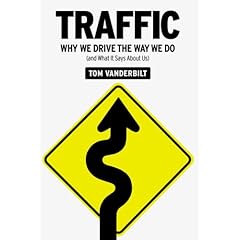
Macro-nations of the modern era sometimes emerged from a process of
Mostly-Democratic Federation -- e.g. United States, Canada, Australia, EU, and somewhat Argentina, Brazil, Mexico, to name the biggest -- but sometimes were the
Inheritors of Empire -- e.g. Russia, China, India, Indonesia, to name the biggest. In China, the unsurprising consequences of unchosen,
violent imperial assimilations include ongoing separatism in the south and east, for instance in Tibet and Xinjiang. In Russia, similar separatism thrives especially on the edges, mostly the south and west, for instance in Chechnya. Other imperial agglomerations have fragmented -- e.g. Yugoslavia, the non-Russian SSRs of the Soviet Union (heir to greater Imperial Russia), Arabia (splitting into KSA, Jordan, Syria, Lebanon & Iraq), and post-partition Pakistan (forking off Bangladesh). What's especially curious about the remaining heirs of empire is how jealously they guard against interference in their own internal affairs -- e.g. witness Russia demanding immunity over slaughter and oppression in Chechnya or China demanding immunity over slaughter and oppression in Tibet -- but how also they brazenly meddle externally and interfere in the affairs of their near-neighborhood -- e.g.
China historically in Vietnam and
Russia today in Georgia. Stupid. Sad. Unnecessary. I seriously think
Asimov is right and we need to urgently think about a
post-nationalist future, most especially a
post-imperialist future. And the
United Nations alone doesn't cut it as vehicle for this venture. That unfortunate edifice reinforces and allows starkly authoritarian neo-imperialist nations -- including so-called Security Council members -- which outrageously oppress their citizenry while self-righteously claiming sovereign immunity from outside interference. What we really need are for the
Free Peoples of Earth to unite into a new kind of
polity, one ensuring inviolate individual rights and securing for each and every citizen their sacred spheres of personal sovereignty. And, who knows, perhaps in the eventual future, we'll indeed become part of a larger federation
Beyond Our Cradle...

 Author and cartoonist Lynn Johnston has finished with the future lives of her For Better or For Worse cast of characters and will now shift to a novel format featuring "new-runs" according to Michael Cavna's piece in the Post Lynn Johnston's Drawn-Out Adieu to Cartooning. For faithful readers -- such as yours truly -- who rejoiced in living with the real-time triumphs and tragedies of the cast, it's a big blow. But all good things seem to come to an end, so they say. Maybe, however, it's a renewed beginning. Ah, the glories of fiction! In any case, check out Lynn's own explanation...
Author and cartoonist Lynn Johnston has finished with the future lives of her For Better or For Worse cast of characters and will now shift to a novel format featuring "new-runs" according to Michael Cavna's piece in the Post Lynn Johnston's Drawn-Out Adieu to Cartooning. For faithful readers -- such as yours truly -- who rejoiced in living with the real-time triumphs and tragedies of the cast, it's a big blow. But all good things seem to come to an end, so they say. Maybe, however, it's a renewed beginning. Ah, the glories of fiction! In any case, check out Lynn's own explanation...

























































